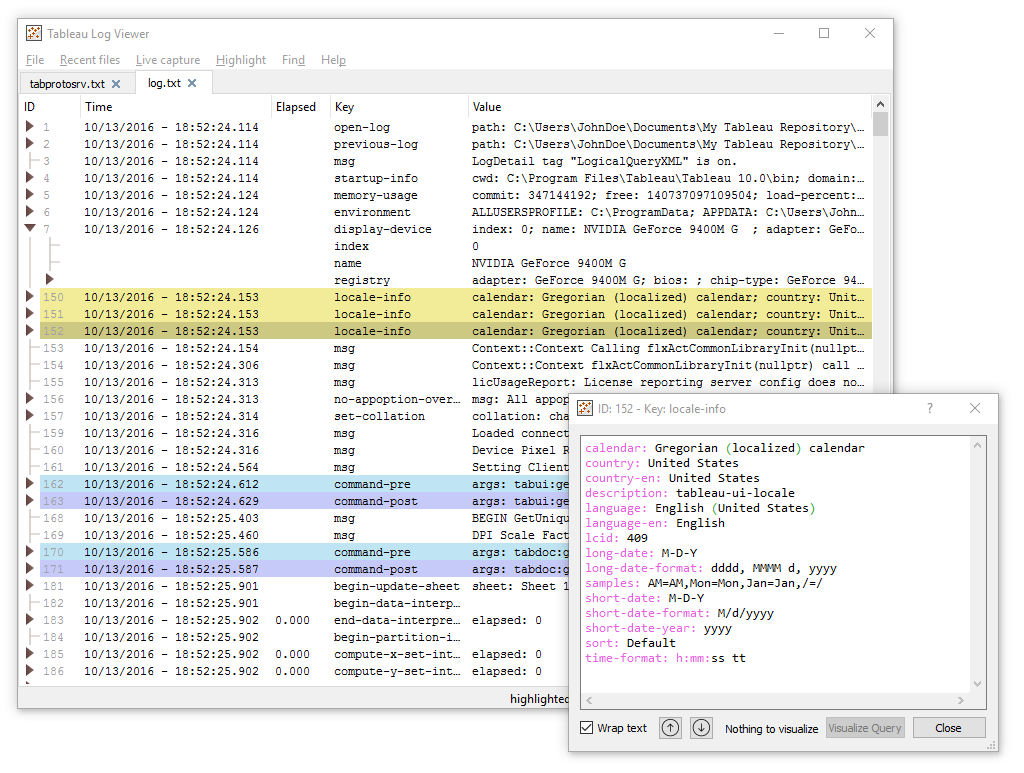Troubleshooting
This content is part of Tableau Blueprint—a maturity framework allowing you to zoom in and improve how your organization uses data to drive impact. To begin your journey, take our assessment(Link opens in a new window).
Tableau Server
For troubleshooting (Windows | Linux), and more detailed analysis of server processes, use Tableau Server Logs. If you need to open a support case, you will need to submit the log files. Tableau Support will use log files to diagnose issues. To generate a log file snapshot and upload to Tableau Support, follow these instructions (Windows | Linux).
Beginning with 2019.3 and licensed as part of the Tableau Advanced Management, the Resource Monitoring Tool provides a comprehensive look at the health of Tableau Server using a web user interface for all of its features. The Resource Monitoring Tools Agent runs on each of the nodes in your Tableau cluster to monitor their hardware utilization, performance, and activity, which are collated by the Resource Monitoring Tool Master Server. This includes Tableau log files in near real time and send messages to the master server for processing and reporting, logging slow views for specific users, and tracing down to the session level.
Alternatively, Logshark, a free open source tool, is a command line utility that you run against Tableau Server logs to generate a set of workbooks that provide insights into system performance, content usage, and error conditions. You should use Logshark to visualize, investigate, and solve issues with Tableau. Some common use cases for Logshark include:
- Troubleshooting issue(s) that are recorded in the logs.
- Analyzing system metrics from log data.
- Regularly validating Tableau Server application behavior against historical data when taking a new build or making a system change.
BEST PRACTICE RECOMMENDATION:
Logshark uses the entire set of Tableau zip log files that you generate. It can be either a just one day or several days of logs. There are many Logshark plugins, which will correspond to a set of log files, to generate pre-built Tableau Workbooks automatically.
For viewing individual log files (Windows | Linux), Tableau Log Viewer is cross-platform, free open source tool with a simple interface that displays Tableau log files in a columnar layout.

Tableau Cloud
Tableau Cloud Site Administrators should subscribe to Salesforce Trust(Link opens in a new window) updates to get email, text, and Atom Feed or RSS Feed notifications when Tableau creates, updates or resolves an incident. When having an issue, check Salesforce Trust(Link opens in a new window) to see if there are any active incidents first. If you are still experiencing problems, you should open a support case.
